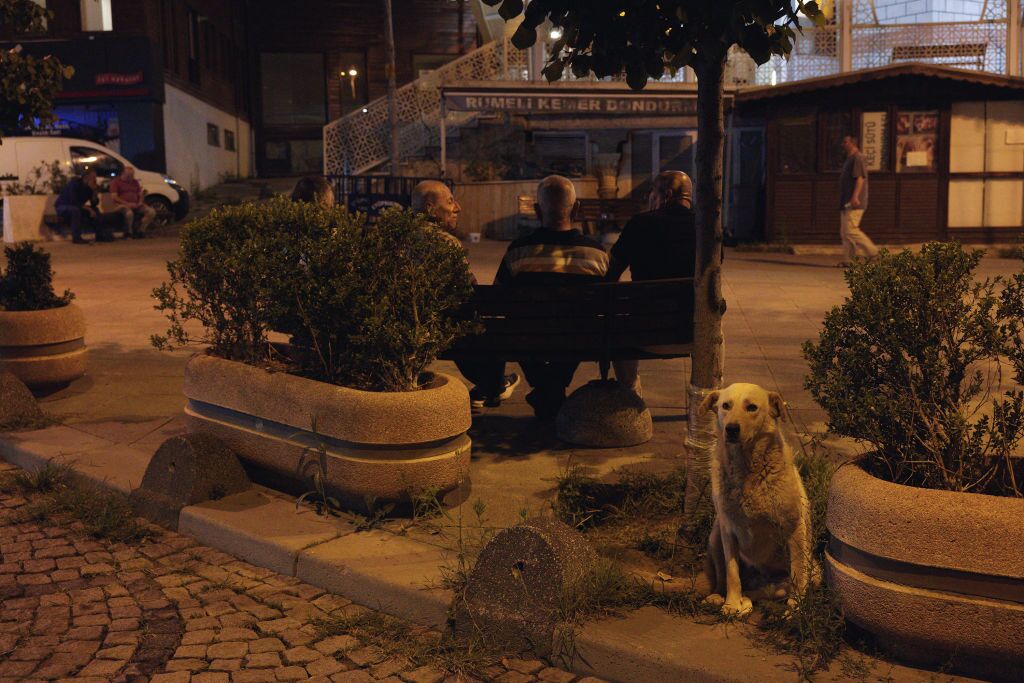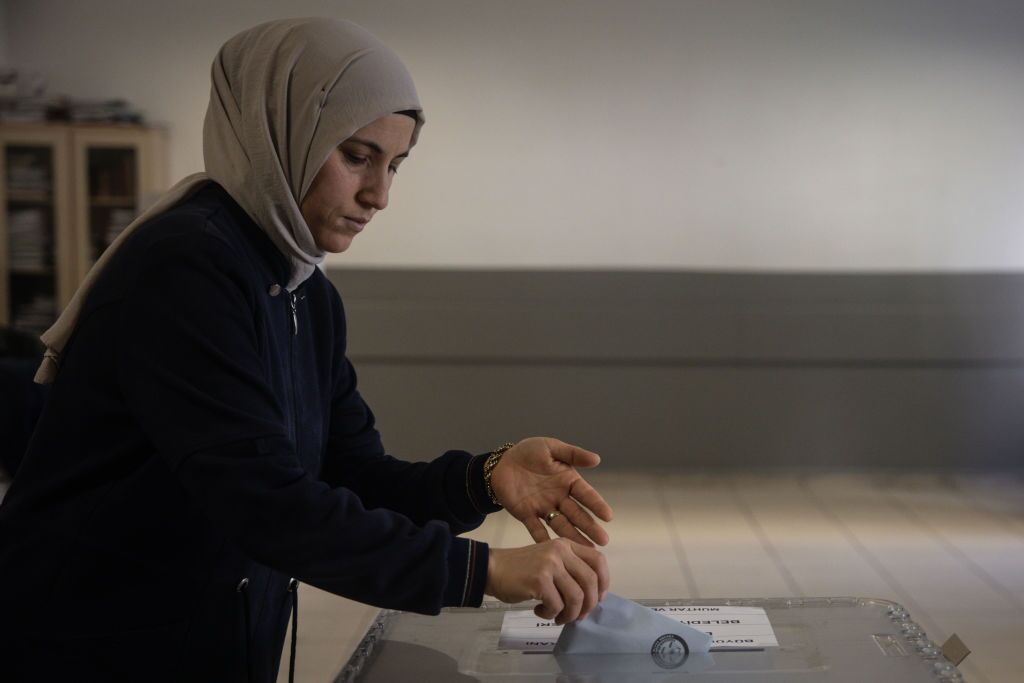Welcome to DU!
The truly grassroots left-of-center political community where regular people, not algorithms, drive the discussions and set the standards.
Join the community:
Create a free account
Support DU (and get rid of ads!):
Become a Star Member
Latest Breaking News
Editorials & Other Articles
General Discussion
The DU Lounge
All Forums
Issue Forums
Culture Forums
Alliance Forums
Region Forums
Support Forums
Help & Search
Women's Rights & Issues
Related: About this forumThis Is What Autocracy Looks Like: How Turkey's Justice and Development Party Turned Its Back on Women and Girls
This Is What Autocracy Looks Like: How Turkey’s Justice and Development Party Turned Its Back on Women and Girls
PUBLISHED 10/8/2024 by Lauren Wolfe
With Project 2025 looming over the U.S. elections, Turkey offers a preview of an antidemocratic future.

Stray dogs in a public park in Kemer Burgaz in Istanbul, Turkey, on July 31, 2024. Recently, animal rights activists in the country have held rallies protesting a bill in the Turkish parliament aimed at managing the stray dog population. (Su Cassiano / Middle East Images / Middle East Images via AFP and Getty Images)
Walking the streets of Istanbul, you come across absolutely gorgeous, enormous stray dogs. They are sweet and ask for little more than petting and a snack to eat. But in mid-July, the governing Justice and Development Party (AKP)—President Recep Tayyip Erdogan’s party—sent a bill to parliament that would order a roundup of these gentle giants and put them in shelters, where they’ll likely be euthanized. In an op-ed for The New York Times in late July, Turkish novelist Kaya Genç wrote that he “can’t shake the sense that for the government, this is not really about the dogs. Mr. Erdogan long ago mastered the art of scapegoating.” Over the years, Erdogan has deflected public discontent with his economic and social policies by pointing fingers at journalists and women’s rights defenders, among others. This time, he’s pulling a smoke-and-mirrors trick with street dogs to deflect from his poor showing in the March elections, which left the AKP in second place by a landslide—the worst outcome for the party since Erdogan came to power in 2002.
. . . .

A woman casts her vote at a polling station on March 31, 2024, in Istanbul, Turkey, for municipal elections. (Chris McGrath / Getty Images)
. . . .
Press freedom is a massive crunch point under the current government. Some 90 percent of media outlets are under direct government control or are owned by Erdogan’s cronies, thereby quashing corruption investigations and policy critiques while villainizing Syrians and other groups. Outlets are censored, fined and shut down. The Coalition for Women in Journalism has tracked Turkey’s abnormally high number of jailed women journalists, who also face physical assaults, organized troll campaigns, workplace harassment, racist attacks and detention.
Women’s rights in general have been backsliding over the past few years—particularly since 2021 when, bowing to the demands of Erdogan’s conservative supporters, Turkey pulled out of the Istanbul Convention. The convention “requires parties to develop laws, policies and support services to end violence against women and domestic violence,” Aydintaşbaş said. “Turkey’s decision to withdraw from the Istanbul Convention on violence against women can be seen as removing one more layer of protection for women.” Amnesty International called the departure “deeply disturbing,” adding that by retreating from the convention, “Turkey turned its back on the gold standard for the safety of women and girls. Since that happened, there are no more women’s marches,” Akkizal said. “It’s a bleak picture.”
According to Akkizal, for the past five or six years, police have attacked people who tried to march for Pride Month. In Istanbul, if women now march at all for International Women’s Day, it’s on a side street, whereas before thousands would march through the city’s main commercial district. She told Ms. that LGBTQ+ and even unmarried straight couples who live together are denied benefits. Not to mention, feminist and LGBTQ+ associations are constantly under “investigation” by the government. It’s all part of a conservative push to promote traditional families. Freedom House reports that LGBTQ+ people face “widespread discrimination, police harassment and violence. Laws do not protect people from discrimination based on sexual orientation or gender identity.” The organization notes that homophobic hate speech played a central role in the AKP’s 2023 election campaign. In February, about a dozen young protesters gathered at the Süreyya Opera House in Kadiköy, on Istanbul’s Asian side, to demonstrate for LGBTQ+ rights. Police arrested them as they tried to unfurl a banner in support of their cause. Still, the cause of civil and human rights in Turkey is not a hopeless one. With the shift in the AKP’s power, “there’s more of an effort for pushback,” Aydintaşbaş said. “People are more galvanized.” When asked whether there is any hope for improvement in the country, Akkizal describeed the students she works with as “full of hope, full of energy and motivation. So I think that in five or 10 years, a huge change will happen for Turkey, because a very, very intelligent and clever and brave generation of young people is coming.”
https://msmagazine.com/2024/10/08/turkey-women-girls/
InfoView thread info, including edit history
TrashPut this thread in your Trash Can (My DU » Trash Can)
BookmarkAdd this thread to your Bookmarks (My DU » Bookmarks)
0 replies, 320 views
ShareGet links to this post and/or share on social media
AlertAlert this post for a rule violation
PowersThere are no powers you can use on this post
EditCannot edit other people's posts
ReplyReply to this post
EditCannot edit other people's posts
Rec (5)
ReplyReply to this post